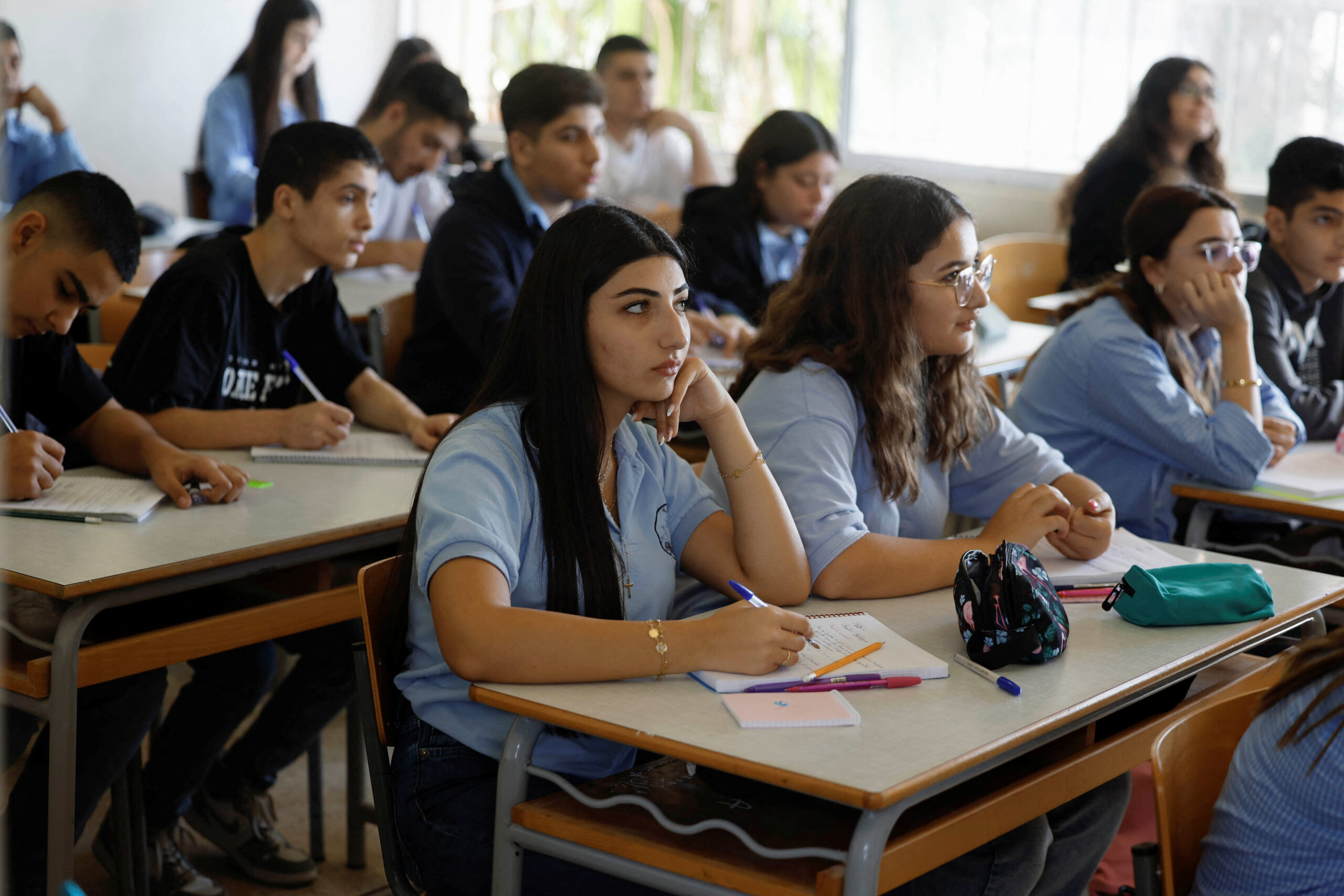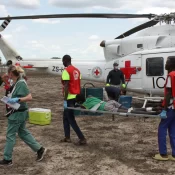
Lebanon’s public schools resume operations in the context of war and displacement
In the tranquil coastal town of Amchit, located 45 minutes north of Beirut, public schools have resumed operations, coinciding with the presence of tens of thousands of internally displaced individuals who have turned some of these schools into temporary shelters.
In September, the escalating conflict between Israel and Hezbollah resulted in the destruction or closure of hundreds of schools in Lebanon, as reported by the United Nations Office for the Coordination of Humanitarian Affairs (OCHA), due to damage or security concerns.
According to the Lebanese education ministry, of the approximately 1,250 public schools in Lebanon, 505 have been converted into temporary shelters for some of the 840,000 individuals displaced internally by the conflict.
Last month, the ministry initiated a phased reopening, enabling 175,000 students – 38,000 of whom are displaced – to return to a learning environment that remains significantly altered.
At Amchit Secondary Public School, currently home to 300 enrolled students with expectations of more as displaced families continue to arrive, the once-familiar spaces have evolved to meet new realities.
According to school director Antoine Abdallah Zakhia, the school was designated as a shelter two-and-a-half months ago.
Today, laundry dangles from classroom windows, cars occupy the playground that was once vibrant, and hallways that used to resonate with laughter now function as resting spaces for families in search of shelter.
Fadia Yahfoufi, a displaced woman residing temporarily at the school, conveyed a sense of gratitude intertwined with a deep longing.
We certainly desire to return to our homes. “No one feels at ease except in their own home,” she remarked.
Zeina Shukr, a displaced mother, expressed her worries regarding her children’s education.
This year has been unjust. Some children are engaged in their studies, while others are not. “Either everyone studies, or we should postpone the school year,” she stated.
EDUCATION WILL CONTINUE
OCHA announced that the gradual plan to restart classes will accommodate 175,000 students, which includes 38,000 displaced children, in 350 public schools that are not being utilized as shelters.
“The educational process serves as a form of resistance against the aggression that Lebanon is currently experiencing,” stated Education Minister Abbas Halabi in an interview with Reuters.
Halabi stated that the choice to restart the academic year was challenging, as numerous displaced students and teachers were not mentally ready to go back to school.
At Amchit Secondary Public School, in a nearby building, teachers and students are adapting to a condensed three-day week, featuring seven class periods daily to enhance learning opportunities.
Nour Kozhaya, a 16-year-old resident of Amchit, maintains a positive outlook. “Lebanon is experiencing conflict, yet education will continue.” “We will keep chasing our dreams,” she said.
Educators are adjusting to the difficult circumstances.
“Everyone is mentally exhausted … after all, this war affects us all,” said Patrick Sakr, a 38-year-old physics teacher.
For Ahmad Ali Hajj Hassan, a 17-year-old displaced from the Bekaa region, the three-day school week poses a challenge, yet it does not deter him.
These are the stipulations. “We can study regardless of them,” he stated.
All Categories
Recent Posts
Tags
+13162306000
zoneyetu@yahoo.com


